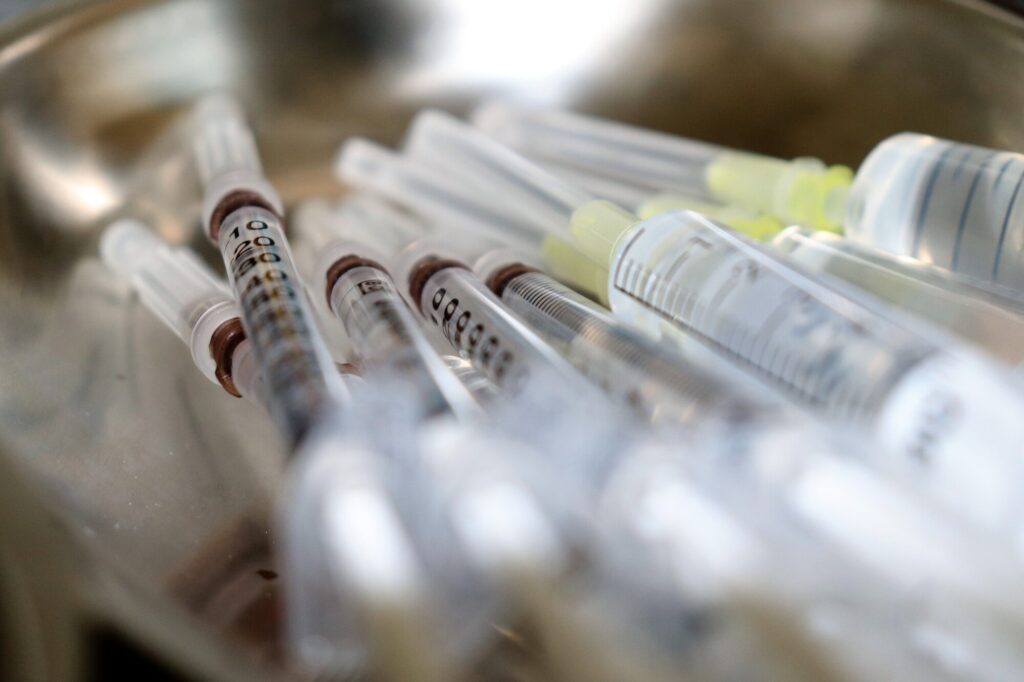Did you know that Pennsylvania is the 14th ranking state for highest paid salaries for phlebotomists? Another good thing is that your salary can be scaled depending on the specific area you’re located in, your experience, and the need of your community. This career choice is always in demand and that isn’t likely to change.
However, to tap into this career, you’ll need a Phlebotomy technician certification in Pennsylvania to get started. If you are interested in a career that is personally and professionally rewarding, becoming a phlebotomist might be the right choice for you.
The best part? It doesn’t take long to get trained and certified, leaving ample time and opportunity for you to make a name for yourself in the industry.
If you love helping people and want to make a difference in their lives while making a stable income, this is the perfect time to become a phlebotomist.
Keep reading to find out what this career entails, how to become certified, and what else you should know.
What Exactly Is Phlebotomy and What Does It Entail?
Phlebotomy is the medical act of drawing blood for testing or for transfusion. In other terms, it’s the use of surgical access or a type of puncture within the vein to help with drawing blood. As a phlebotomist, you will be considered a professional who is trained and licensed to collect blood from patients and then handling those blood samples.
There are a variety of reasons that a blood sample may be ordered such as
- Blood transfusion purposes
- Diagnostic testing
- General treatment of blood disorders
- Working within a blood bank
- Blood tests for pregnancy
People who have illnesses like diabetes or who have undergone surgery often need to have their blood drawn. The main duties of a phlebotomist include cleaning the skin, locating a suitable vein, and then inserting the needle in a precise and minimal way or as directed by a physician or lab manager.
A phlebotomist is responsible for the vein selection, the venipuncture procedure, and the proper collection, labeling, and handling of the sample. After the procedure, they clean, disinfect, and bandage the area. This career is patient-facing and rewarding given that you are part of a patient’s health process no matter the reason they need blood drawn
Why Get a Phlebotomy Technician Certification in Pennsylvania and What Are the Benefits?
A phlebotomist has the unique opportunity to help people every day. One of the main reasons is that you will be able to help patients who are going through difficult times or that need someone to make the bloodletting experience easier especially if they have a fear or general discomfort with needles.
The top reason for many people is the stability of the field. This is a great reason for getting a phlebotomy technician certification.
People will always have the need for getting their blood drawn giving the specialty a stable option with consistent high demand. You can make a stable income and have the opportunity to receive benefits. There are many different job locations associated with this field as well.
A few examples could be working in a doctor’s office, an independent clinical lab, a blood donation center, a hospital, or even a blood plasma center. You may also have the opportunity to travel for this role and act as a traveling Phlebotomy Technician which often means higher financial opportunities.
This means that you won’t have to worry too much about not knowing where to start your career. You will have a variety of options and if you enjoy additional work, you can also get involved with blood drives and other community events.
What Are the Requirements to Become a Phlebotomist?
A Look at the Application Process
The process is simple to navigate but there are a few key things to be aware of. You will need to;
- Complete at least 40 hours of phlebotomy training
- Have a high school diploma or a GED
- Pass a background check
- Become certified in CPR in many cases
- Successfully pass your exam
The exam will consist of at least 80 questions and you will have two hours to complete the exam. You will need a score of at least 70% to pass this exam. You should also know that on average the rate of passing this exam is around 75% so it’s important to take training seriously when training to become a phlebotomy tech.
You Should Know the Levels of Phlebotomy Certification
There are specifically three levels of phlebotomy certification. Those three levels will consist of;
- Limited Phlebotomy Technician
- Certified Technician l
- Certified Technician ll
You should also know that there are two specific types of phlebotomy. The two main types are;
- Capillary puncture
- Venipuncture
You might have heard of a capillary puncture referred to as the well-known “finger stick” or as the heel stick. This is a form of skin puncturing and it’s becoming a more common method used in phlebotomy. The reason for this is that it limits the blood taken from the patient.
Anywhere from 10 or 300 micro liters can be taken in a sample and are easily used for testing such as thyroid function testing or testing blood sugar. It’s just as effective and often more appropriate in some cases such as with infants or with a patient with a low level of needle tolerance. As for venipuncture, you might have seen it spelled a bit differently as venepuncture.
What this is is the process of achieving intravenour access or access through the vein for the purpose of taking blood samples. This is also the method used in intravenous therapy.
Quality Training Opportunities for the Career You Want
A Phlebotomy technician certification in Pennsylvania will allow you access to an enjoyable, rewarding, and lucrative career opportunity. If you enjoy working with people on a daily basis and have the personality for something patient-facing this might be a great choice for your entrance into the industry. If you don’t mind blood and want a career option that will always be needed when the job market is concerned, phlebotomy could be your dream career.
To get started, you’ll need proper training. Work with Phlebotomy Career Training and check out our list of courses to get started.

Nancy L. Kimmel obtained her PhD in Environmental Engineering in 2002, then went on to teach Physics and Mechanical Engineering at Lawrence Technological University, Henry Ford College and Oakland University. She obtained her Associate in Nursing from Henry Ford College and then went on to earn her Master Degree as a Family Nurse Practitioner and became Board Certified working as a licensed FNP in the State of Michigan. She then went on to Medical School where she is now in her 3rd year, and is also in the process of obtaining her Doctorate in Nursing Practice through Chamberlin University. She has authored the NET Study Guide, as well a several books on subjects of Math, ECG/EKG and Phlebotomy. She holds a patent on an Air Filter through the U.S. Patent Office.


